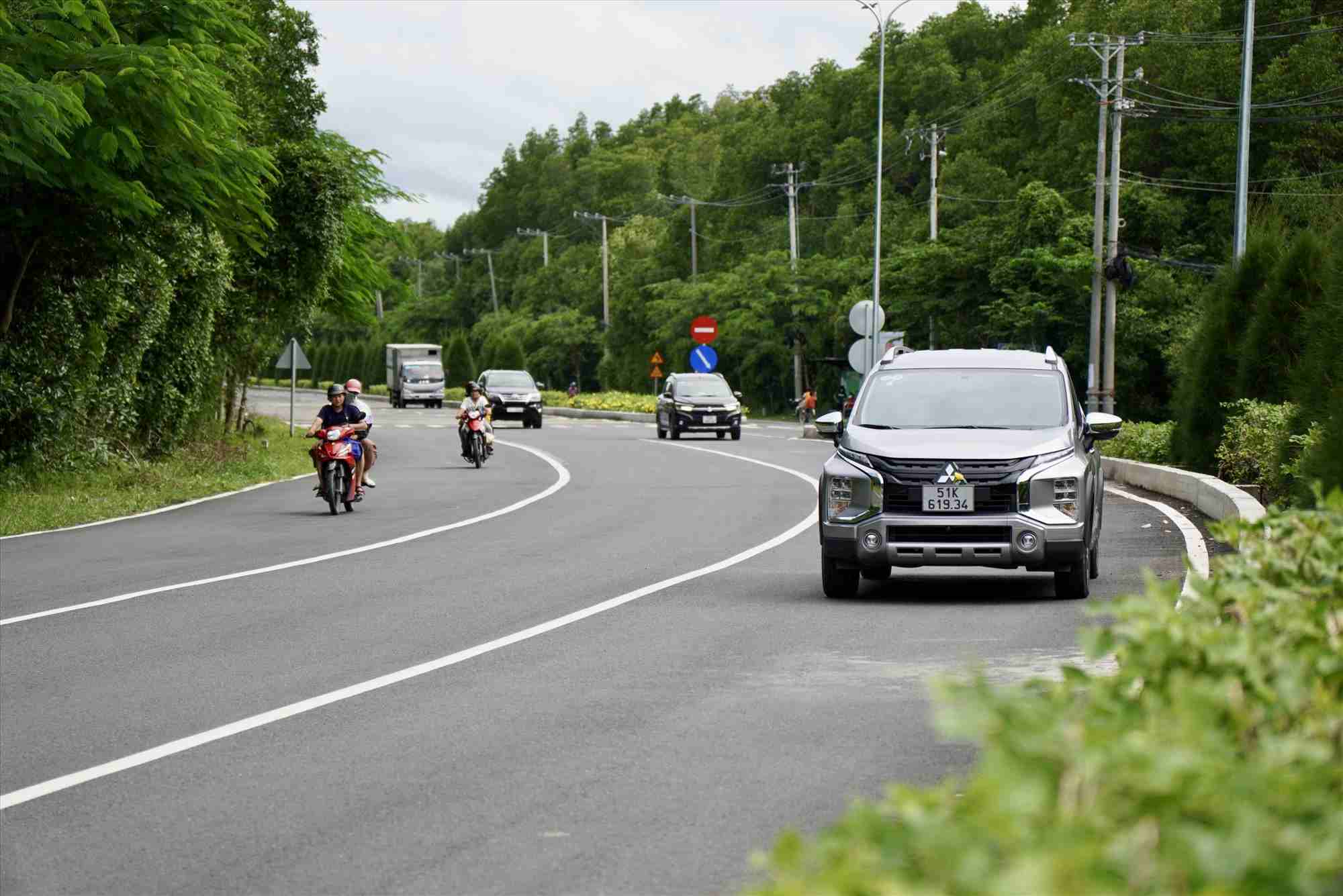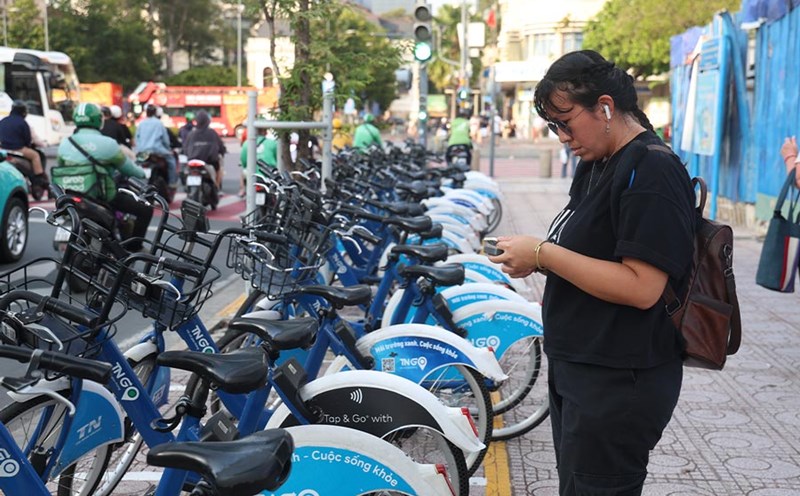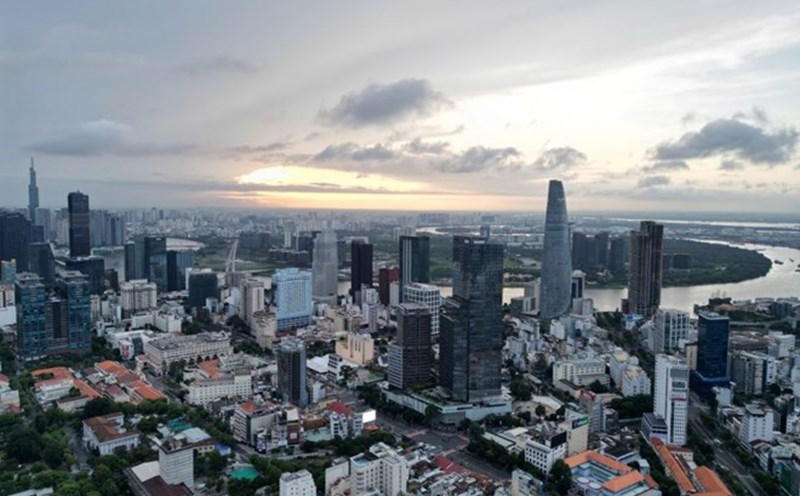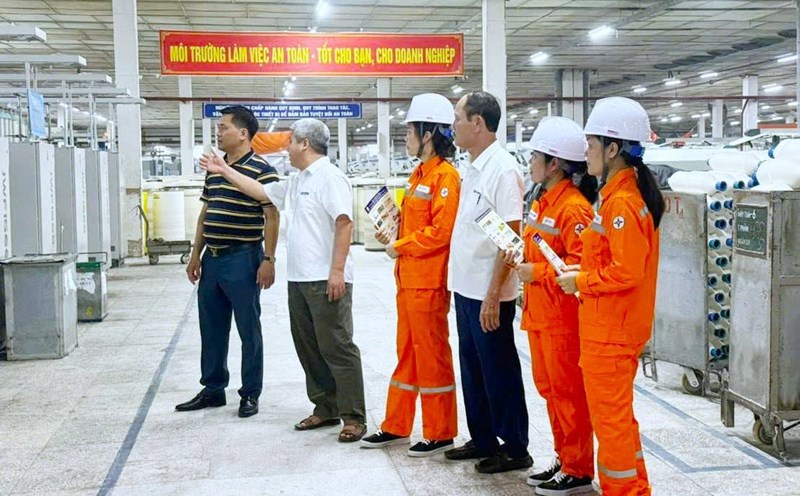Building green and sustainable transportation in Con Dao, Can Gio
The draft Project on vehicle emission control developed by the Ho Chi Minh City Department of Construction, Can Gio and Con Dao were selected because of their strategic location in terms of ecology and tourism potential.
Can Gio is the world's first biosphere reserve in Vietnam, considered the "green lung" of Ho Chi Minh City. Meanwhile, more than 80% of Con Dao area belongs to the National Park, which is known for its spiritual - ecological tourism. However, both localities are under pressure from vehicles emitting increasing emissions and fine dust. Currently, more than 95% of motor vehicles still use fossil fuels, while public transport and non-motor vehicles are almost not developed.
The project aims to develop a green, smart transportation system, suitable for the ecological and residential characteristics of Can Gio and Con Dao. This not only helps improve air quality, improve public health, but also removes infrastructure bottlenecks, promote tourism and preserve the ecosystem.
In Can Gio, from July 1, 2026, motorbikes in Binh Khanh, An Thoi Dong, Can Gio and Thanh An communes will have to have their emissions inspected, 6 months earlier than the whole of Ho Chi Minh City. By January 1, 2030, all motorbikes in this area will have to meet Level 2 emission standards, which is 2 years earlier than the city's general roadmap. From 2026, this area will also pilot the zoning of traffic control on Rung Sac route (from Binh Khanh ferry to Duyen Hai road), limiting motorbikes below level 2 and cars below level 4 to move on weekends.
In Con Dao, the project proposes to open 6 new electric bus routes connecting Co Ong airport, Ben Dam port with tourist attractions and historical sites. In parallel, shared electric bicycle services will be deployed in residential areas and hotels, while solar charging stations will be installed at bus stations, markets and tourist areas to serve the green travel needs of people and tourists.
At the same time, an emission monitoring system will be invested, including license plate recognition cameras, mobile inspection equipment, emission measurement sensors, AI analysis data integrated with the inspection database.

Fair transformation for people
To make it easier for people to switch to green vehicles, the project offers many support policies: Reduce 50% of registration and license plate fees for electric vehicles; poor and near-poor households are supported from 80 - 100% of the cost of switching to electric motorbikes under 20 million VND; ordinary households are supported to buy gasoline motorbikes by year, from 500,000 VND (over 20 years) to 5 million VND (under 5 years)...
Mr. Ho Van Binh - Vice Chairman of Can Gio Commune People's Committee - said that although there are no more poor households in the area, the rate of near-poor households is still high (22%), vulnerable when forced to change vehicles. "There needs to be a policy to support 100% of new means for disadvantaged groups, while linking it with vocational training and livelihood conversion to help people have more sustainable job opportunities in a green economy" - Mr. Binh proposed.
According to Associate Professor, Dr. Pham Xuan Mai - former Head of the Faculty of Traffic Engineering, Ho Chi Minh City University of Technology, in order for Can Gio and Con Dao to truly become green urban models, it is necessary to invest heavily in the power grid and renewable energy. Can Gio needs to focus on developing rooftop solar power and smart charging stations.
In Con Dao, it is necessary to convert all vehicles to electric vehicles, gradually replace high-speed trains and ferries with LNG or hybrid electric vehicles, and soon develop wind power - solar power combined with storage batteries to ensure stable, clean power sources and reasonable prices.
Deputy Director of the Ho Chi Minh City Department of Construction Bui Hoa An affirmed that the selection of Can Gio and Con Dao as a pilot comes from the sensitive ecological characteristics, easy to control and the large number of vehicles. The most important thing is to have a clear policy framework and a specific roadmap for people and businesses to prepare. At the same time, it is necessary to ensure the principle of equitable transformation so that all classes have the opportunity to access green vehicles" - Mr. An emphasized.











